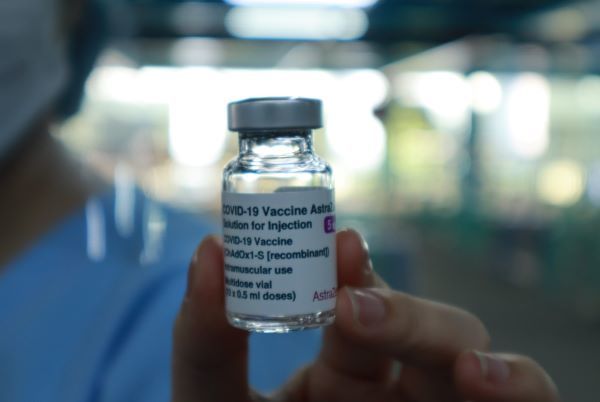8 habits to increase fertility
There are many factors that can affect fertility, including lifestyle and daily habits.
If you’re trying to conceive, increase your chances of conceiving by changing these daily habits.
Prioritize sleep
Sleep affects all aspects of life, the ability to study, work and mental, daily mood. Lack of sleep can even lead to long-term health problems, including fertility. The cause of poor sleep is not known, but research suggests that hypothalamic pituitary gland (HPA) activation and circadian rhythm disturbances may interfere with reproduction. In addition, a small review study also found that people who worked at night were more likely to have a miscarriage. Not getting a good night’s sleep can also lead to overweight, problems with ovulation, or affect sperm health.
If you’re trying to conceive, identify the cause of your lack of sleep so you can correct it. Establish a fixed sleep and wake schedule, keep electronic devices like TVs, phones and laptops out of the bedroom, and avoid caffeine, alcohol, and overeating before bed. Do not forget to create a cool, comfortable sleeping space for a good night’s sleep.
Reduce caffeine consumption
Studies have found that the risk of miscarriage is increased with caffeine consumption, so reduce caffeine consumption to the recommended daily limit for pregnancy. The American College of Obstetricians and Gynecologists (ACOG) recommends no more than 200 mg of caffeine per day.
If you drink caffeine because you feel sluggish, try to get enough sleep. Even if you’ve gotten enough sleep, it’s common to feel tired in the afternoon. A lunch rich in protein and vegetables can sometimes help prevent afternoon sleepiness. A quick 15 or 20 minute nap can also give your body an energy boost.
There’s no need to give up coffee altogether, but reduce your caffeine intake by switching to herbal teas, decaffeinated teas, or decaffeinated coffees.

Reduce caffeine consumption and switch to herbal teas, juices more beneficial for conception. Image: Xframe
Do exercise
Exercise is great for your heart, lungs, and immune system. Regular exercise is especially important for overweight and obese people. Research has found that physical activity slightly increases the likelihood of pregnancy during a menstrual cycle, regardless of a woman’s weight.
Vigorous exercise for 30 to 60 minutes a day reduces the risk of ovulatory infertility. However, if you exercise vigorously for more than 60 minutes a day, there is a high risk of causing ovulation disorders. According to experts, should do muscle strengthening exercises 2 days a week.
It doesn’t matter whether you walk, run, play a sport or go to the gym, try to move more during the day and week.
Eat sweets in moderation
Eating a lot of sweets can lead to overweight and obesity, heart disease and stroke, type 2 diabetes and even cancer.
Research has found that a diet high in whole grains, fruits, vegetables, fish and unsaturated fats is associated with increased fertility in all sexes. The USDA Dietary Guidelines for Americans 2020-2025 recommends that 85% of daily calories come from nutrient-rich foods, with the remaining 15% going to added sugars and sugars. saturated fat.
If you tend to eat sweets when stressed, try to find other ways to cope. Meditation or exercise are effective ways to reduce stress.
Stop drinking wine
There is no link between occasional drinking and infertility. Even so, medical experts agree that it is best to abstain from alcohol while trying to conceive. Because most people don’t know they’re pregnant until a few weeks, and because there’s no safe level of alcohol consumption during pregnancy, the CDC recommends avoiding alcohol if you’re trying to get pregnant.
In addition to the risks of alcohol to the unborn baby, studies have also found a link between regular drinking and reduced fertility. Heavy alcohol use can decrease ovarian reserve. In alcoholic men, semen volume and sperm count may also decrease. Carbonated water or mocktails can be a good alternative to alcohol.
Quit smoking
Smoking is the leading preventable cause of death in the United States. Smoking increases the risk of cancer, chronic obstructive pulmonary disease, chronic bronchitis, coronary heart disease, heart attack and stroke. In addition, smoking affects the fertility of both men and women. Smoking can cause infertility, lower sperm function, and make it more difficult to have in vitro fertilization (IVF).
Even secondhand smoke can harm a pregnancy. Those exposed to higher levels of environmental tobacco smoke have a higher risk of miscarriage, stillbirth, and ectopic pregnancy. As with alcohol, it’s better to quit before getting pregnant.
Make an appointment with a doctor
If you’re thinking about starting a family, you should talk to your doctor. Pre-pregnancy exams are important so your doctor can make sure you’re healthy and detect potential problems affecting conception or pregnancy.
Pre-pregnancy check-ups are especially important for people over 35. The teen years to the late 20s are the most fertile years. Fertility declines in your 30s. In your mid-40s, conception without support is highly unlikely.
In addition to a physical exam, the doctor can do blood tests, discuss the medications you are taking, necessary vaccines, vitamins, possible exposure to toxic substances …
Check for sexually transmitted diseases
Some sexually transmitted diseases (STDs) can lead to infertility. In fact, sexually transmitted diseases are the leading preventable cause of fallopian tube-related infertility.
STDs can lead to premature birth, low birth weight, premature rupture of membranes, pelvic inflammatory disease, miscarriage, and stillbirth. STD testing helps you get treatment to make conception and pregnancy easier and safer. If the disease cannot be cured, your doctor can apply measures to help reduce the risk to your health and future pregnancy. Because STIs are contagious, your sexual partners should also be tested.
Mr. Ngoc (Verywell Family)
at Blogtuan.info – Source: vnexpress.net – Read the original article here



